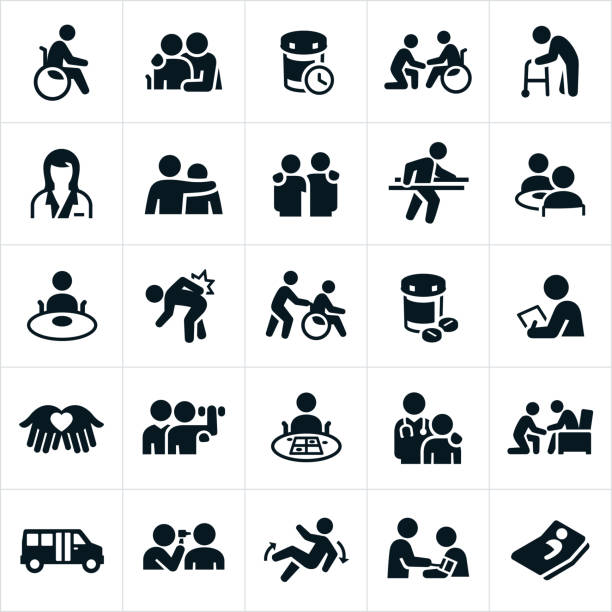In today’s fast-paced world, therapy services have become a crucial part of maintaining mental health and well-being. The demand for professional mental health services is on the rise as people seek support to navigate life’s challenges. Therapy services offer a structured and supportive environment for individuals, couples, and families to work through personal and interpersonal issues. This article explores the benefits, types, and availability of therapy services, emphasizing their importance in fostering mental resilience and improving quality of life.
What Are Therapy Services?
Therapy services encompass a wide range of professional mental health support, provided by licensed therapists and counselors. These services aim to help individuals understand their emotions, manage stress, and develop coping mechanisms. Therapy sessions can take place in various settings, such as clinics, private practices, or online platforms. Regardless of the format, therapy offers a safe space for individuals to explore their feelings, behaviors, and thought patterns, ultimately leading to personal growth.
Why Therapy Services Are Important
Life can be overwhelming, and therapy provides essential tools to manage stress, anxiety, depression, and other mental health conditions. Many people struggle with balancing work, relationships, and personal aspirations, leading to feelings of isolation or inadequacy. Therapy services allow individuals to gain insight into their struggles, make sense of past experiences, and develop strategies for a healthier future. Seeking therapy does not indicate weakness; rather, it is a proactive step toward personal empowerment and mental health maintenance.
Different Types of Therapy Services
Therapy services are not one-size-fits-all; there are various approaches to meet diverse needs. Here are some common types of therapy that cater to different issues:
1. Cognitive Behavioral Therapy (CBT)
CBT is one of the most widely used forms of therapy, focusing on identifying and changing negative thought patterns. This type of therapy is particularly effective for those dealing with anxiety, depression, and trauma. CBT helps individuals recognize harmful behaviors, understand their triggers, and adopt healthier ways of thinking and behaving.
2. Psychodynamic Therapy
Rooted in psychoanalytic theory, psychodynamic therapy explores unconscious thoughts and emotions that influence behavior. This form of therapy often involves exploring past experiences and relationships to uncover patterns that may be affecting current behavior. It’s especially helpful for those who want to gain a deeper understanding of their inner lives.
3. Humanistic Therapy
Humanistic therapy, which includes approaches like person-centered and existential therapy, focuses on self-exploration and self-acceptance. This type of therapy encourages clients to take responsibility for their actions and promotes self-awareness. Humanistic therapy can be beneficial for individuals seeking personal growth and a greater sense of purpose.
4. Family Therapy
Family therapy addresses issues within family dynamics, involving family members in the therapeutic process. This approach is ideal for families experiencing conflict, communication issues, or significant life changes. Family therapy aims to improve understanding and strengthen relationships among family members.
5. Group Therapy
Group therapy involves multiple participants who share similar issues, guided by a licensed therapist. It creates a supportive environment where individuals can learn from others’ experiences and offer mutual support. Group therapy can be beneficial for people dealing with substance abuse, trauma, or social anxiety.
6. Couples Therapy
Couples therapy focuses on improving relationships, whether between married couples or partners. It addresses issues like communication, trust, and conflict resolution, helping partners build a healthier, more fulfilling relationship. Couples therapy is a valuable tool for those looking to strengthen their bond and understand each other better.
How to Choose the Right Therapy Service
Choosing the right therapy service depends on individual needs and personal preferences. Here are some tips for selecting a suitable therapy service:
- Identify Your Goals: Determine what you hope to achieve through therapy, whether it’s coping with anxiety, resolving past trauma, or improving relationships.
- Research the Types of Therapy: Different issues may require specific therapeutic approaches. For instance, if you’re dealing with obsessive thoughts, CBT might be the most effective option.
- Consider the Format: Therapy services are available in-person and online. Online therapy can be convenient and accessible for those with busy schedules or limited mobility.
- Seek a Licensed Therapist: Ensure that the therapist you choose is licensed and has experience in the area you wish to address. Reviews and recommendations can also help you find a reliable professional.
- Evaluate Comfort and Compatibility: Feeling comfortable with your therapist is essential for effective therapy. Don’t hesitate to switch therapists if you feel the need to find someone who better matches your needs.
Benefits of Therapy Services
Therapy services offer numerous benefits that contribute to overall mental well-being. Here are some of the advantages:
- Improved Emotional Awareness: Therapy helps individuals become more aware of their emotions, enabling them to process feelings in a healthy way.
- Enhanced Coping Skills: Through therapy, clients learn techniques for managing stress and anxiety, empowering them to handle life’s challenges.
- Better Relationships: Therapy can improve communication skills, leading to healthier relationships with family, friends, and colleagues.
- Increased Self-Confidence: Understanding oneself and learning to address challenges builds self-esteem, promoting a more positive self-image.
- Reduced Symptoms of Mental Illness: Therapy can alleviate symptoms of conditions like depression and anxiety, improving quality of life.
Access to Therapy Services
The accessibility of therapy services has increased significantly, thanks to online platforms and telehealth options. Many people now have the option to access therapy from the comfort of their own homes, which has made mental health support more convenient and widespread. Numerous organizations also offer low-cost or free therapy services for those with financial limitations, making mental health care more inclusive.
Conclusion
Therapy services are an invaluable resource for anyone seeking personal growth, emotional stability, and mental well-being. With a variety of approaches available, individuals can find a therapy style that suits their unique needs. Embracing therapy is a courageous step toward a healthier, more balanced life. Whether addressing mental health challenges or simply seeking personal improvement, therapy offers tools for lasting positive change.




